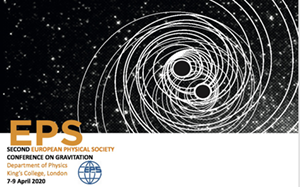Speaker
Description
Matter-wave interferometers with ultracold atoms are highly sensitive to inertial quantities. In the Hannover Very Long Baseline Atom Interferometry (VLBAI) facility, we aim to exploit the linear scaling of this sensitivity with the free fall time of the atoms in a 10 m baseline[1]. This will enable precision measurements of gravitational acceleration, as well as tests of the weak equivalence principle and gravitational redshift [2,3].
In this contribution, I will show details on the construction of the VLBAI facility in the newly founded Hannover Institute of Technology (HITec). The combination of high-flux sources of Bose-Einstein condensates, a high-performance magnetic shield around the 10 m baseline and an in-vacuum vibration isolation platform are anticipated to provide shot-noise limited short-term instabilities below $10^{-9} \text{m/s}^2$ in 1 s, competing with state-of-the-art superconducting gravimeters, and tests of the universality of free fall at the $10^{-13}$ level [4].
This work is funded by the DFG as a major research equipment (VLBAI facility), via the CRCs 1128 “geo Q” and 1227 “DQ-mat”, under Germany’s Excellence Strategy (EXC 2123) “QuantumFrontiers”, and by the Federal Ministry of Education and Research (BMBF) through the funding program Photonics Research Germany (contract number 13N14875).
[1] J. Hartwig et al., New J. Phys. 17 (2015)
[2] D. Schlippert et al., arXiv:1909.08524 (2019)
[3] S. Loriani et al., Sci. Adv. 5 (2019)
[4] É. Wodey et al., arXiv:1911.12320 (2019)

